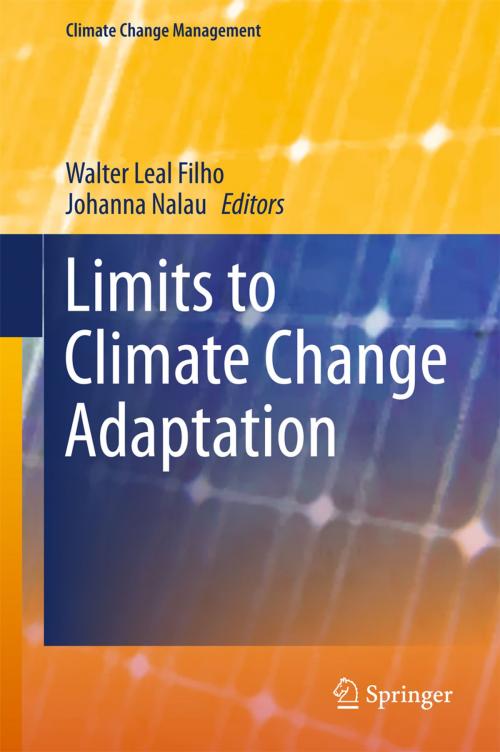Limits to Climate Change Adaptation
Nonfiction, Science & Nature, Science, Biological Sciences, Environmental Science, Earth Sciences, Nature| Author: | ISBN: | 9783319645995 | |
| Publisher: | Springer International Publishing | Publication: | November 15, 2017 |
| Imprint: | Springer | Language: | English |
| Author: | |
| ISBN: | 9783319645995 |
| Publisher: | Springer International Publishing |
| Publication: | November 15, 2017 |
| Imprint: | Springer |
| Language: | English |
This book sheds new light on the limits of adaptation to anthropogenic climate change. The respective chapters demonstrate the variety of and interconnections between factors that together constitute the constraints on adaptation. The book pays special attention to evidence that illustrates how and where such limits have become apparent or are in the process of establishing themselves, and which indicates future trends and contexts that might prove helpful in understanding adaptation limits. In particular, the book provides an overview of the most important challenges and opportunities regarding adaptation limits at different temporal, jurisdictional, and spatial scales, while also highlighting case studies, projects and best practices that show how they may be addressed. The book presents innovative multi-disciplinary research and gathers evidence from various countries, sectors and regions, the goal being to advance our understanding of the limits to adaptation and ways to overcome or modify them.
This book sheds new light on the limits of adaptation to anthropogenic climate change. The respective chapters demonstrate the variety of and interconnections between factors that together constitute the constraints on adaptation. The book pays special attention to evidence that illustrates how and where such limits have become apparent or are in the process of establishing themselves, and which indicates future trends and contexts that might prove helpful in understanding adaptation limits. In particular, the book provides an overview of the most important challenges and opportunities regarding adaptation limits at different temporal, jurisdictional, and spatial scales, while also highlighting case studies, projects and best practices that show how they may be addressed. The book presents innovative multi-disciplinary research and gathers evidence from various countries, sectors and regions, the goal being to advance our understanding of the limits to adaptation and ways to overcome or modify them.















